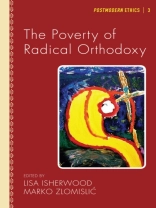Radical Orthodoxy, whose founding father is John Milbank, claims that God has been pushed to the margins in modernity and that a false and misleading neo-theology has taken hold that needs to be revisited and contested. It is this return to the premodern that often leads theologians to have reservations about Radical Orthodoxy when they might otherwise have some sympathy for many of its positions. Radical Orthodoxy, like most traditional theology, claims that the power of God is in all creation and that God sits everywhere for all to partake of. But there appears to be a failure to see that the church and theology do not set in place systems that live out this basic assumption. Liberation theology, while sharing much of the same assumption that God is everywhere and to be shared, at the same time engages in a critique of the structures that claim to facilitate this vision, and finds them wanting. From here, then, liberation theologians attempt to refigure our understanding of shared power in order to broaden the vision, while it may be argued that Radical Orthodoxy simply restates the assumption with little political critique of the issues. Perhaps this point explains why this book is titled The Poverty of Radical Orthodoxy rather than Radical Error!
Об авторе
Marko Zlomislić is professor of philosophy at Conestoga College, Institute of Advanced Learning in Kitchener, Canada. He has authored and edited a number of books, including Jacques Derrida’s Aporetic Ethics (2007), The Sorrowful Mysteries: A Postmodern Poetics (1998), Zarathustra’s Joyful Annunciations (1995). He is currently writing a manuscirpt entitled, Crossing out the Crucifix.







![Обложка Brian Schrag & Julisa Rowe: Community Arts for God's Purposes [Chinese] 貼近神心意的社群藝術 Обложка Brian Schrag & Julisa Rowe: Community Arts for God's Purposes [Chinese] 貼近神心意的社群藝術](https://static.worldofdigitals.com/thumb_webp/740/9781645083740.webp)




